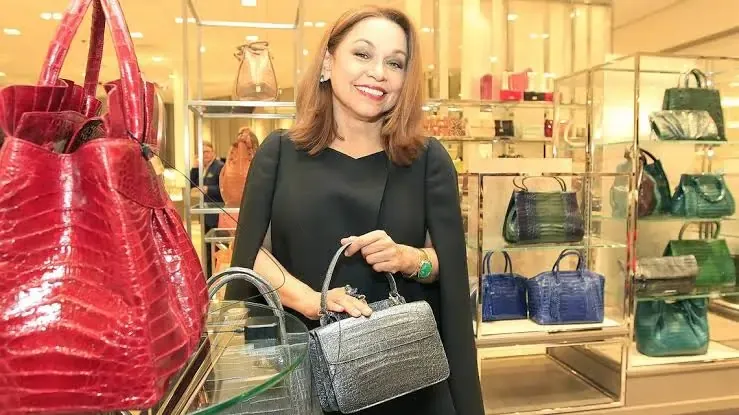Gonzalez's arrest in 2022 in Cali, Colombia, and subsequent extradition to the US shed light on a multiyear conspiracy she orchestrated. This scheme involved recruiting couriers to transport her high-end handbags on commercial flights, bypassing regulations on the importation of wildlife products into the US.
Assistant US Attorney Thomas Watts-Fitzgerald likened Gonzalez's actions to those of drug traffickers, emphasizing the profit-driven nature of her endeavors. Despite pleas for leniency from Gonzalez's legal team, which painted a picture of her journey from a single mother to a fashion icon, prosecutors argued for a harsher sentence, highlighting her lavish lifestyle compared to the couriers she employed.
The court took into account Gonzalez's nearly 14-month confinement in a Colombian prison awaiting extradition but ultimately decided on an 18-month sentence, which she must begin serving on June 6th. This decision reflects the seriousness of her offenses and sends a message about the consequences of wildlife trafficking.
Gonzalez's illegal activities not only tarnished her reputation but also had significant repercussions for her business. The Colombian company she built, employing mostly women, declared bankruptcy after her arrest, halting operations entirely. Despite her attorneys' arguments that only a small percentage of her merchandise lacked proper authorization, prosecutors emphasized the magnitude of her smuggling operation, estimating that she smuggled goods worth up to $2 million into the US.
While Gonzalez's designs garnered praise from top buyers at prestigious department stores like Bergdorf Goodman and Saks, her illegal actions have undoubtedly damaged her standing in the fashion industry. Comments praising her creativity and craftsmanship, once lauded by retailers, now serve as reminders of her criminal activities.
The use of protected wildlife in Gonzalez's handbags, including crocodile and python skins, raised concerns about conservation and compliance with international treaties like the Convention on International Trade in Endangered Species of Wild Fauna and Flora (CITES). Despite warnings from US officials about the importance of adhering to wildlife trade regulations, Gonzalez continued to sidestep these rules, further exacerbating the severity of her offenses.
Gonzalez's case serves as a cautionary tale about the consequences of illegal wildlife trafficking and the importance of upholding environmental conservation efforts. While her handbags may have been coveted by celebrities and fashion enthusiasts alike, the means by which they were obtained have cast a shadow over her legacy in the fashion world.
As Gonzalez begins her prison sentence, questions linger about the long-term impact of her actions on the fashion industry and the broader fight against wildlife trafficking. With heightened awareness of the environmental and ethical implications of luxury goods production, consumers and industry stakeholders alike are likely to scrutinize brands' sourcing practices more closely in the future.
In the wake of Gonzalez's sentencing, there is an opportunity for reflection and reform within the fashion industry. Stricter regulations and enforcement mechanisms may be necessary to prevent similar cases of wildlife trafficking and ensure that luxury goods are produced ethically and sustainably.
In the meantime, Gonzalez's case serves as a stark reminder that no individual, regardless of their status or reputation, is above the law. As she begins her prison term, she faces the consequences of her actions and the impact they have had on both wildlife conservation efforts and the fashion industry as a whole.

